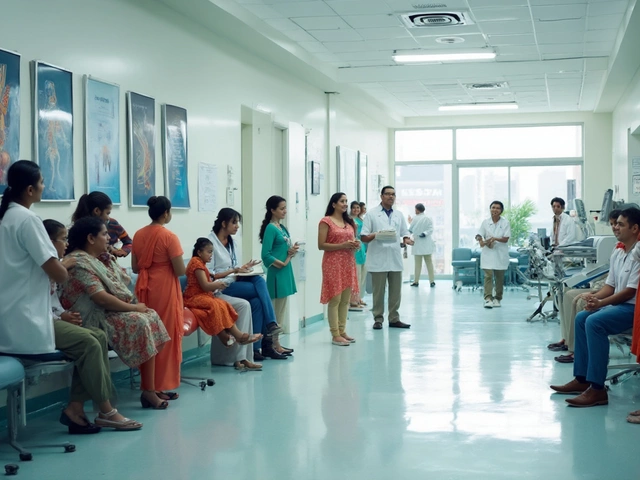Understanding the Real Risks Behind Health Choices
When you read headlines about new surgeries, herbal pills, or fancy health checks, it’s easy to focus on the hype and skip the warning signs. Every treatment, test, or supplement carries a risk, and knowing those risks can save you money, time, and even your health.
On this page we break down the most common dangers you’ll meet across our articles. Whether you’re planning a surgery abroad, buying an Ayurvedic remedy, or signing up for a free health check‑up, the facts below will help you decide if it’s worth the move.
Risks You Might Face in Medical Procedures
Surgeries – from heart operations to knee replacements – differ in recovery time, cost, and safety. Our posts on "Best Countries for Surgery" and "Which Bone Never Heals?" show that even a well‑known hospital can have hidden complications like infection, blood clots, or long‑term mobility issues. Before booking, check the hospital’s accreditation, ask about success rates, and understand what post‑op care you’ll need at home.
Open‑heart surgeries carry a survival rate that varies by age and health condition. If you’re over 70, doctors will weigh the benefits against higher chances of complications. Knowing the exact odds, not just a vague “high risk,” lets you have a realistic conversation with your surgeon.
Hidden Dangers in Supplements and Herbal Remedies
Herbal supplements sound natural, but “natural” isn’t always safe. Articles like "Are Ayurvedic Medicines Safe?" and "Herbs That Harm Your Kidneys" reveal that some plants can interact with prescription meds or damage organs. Always verify the source, look for third‑party testing, and never replace a doctor‑prescribed drug with a supplement unless a professional says it’s okay.
When buying supplements, watch out for undisclosed fillers, incorrect dosages, and false labels. Our guide on picking the best herbal supplement company walks you through checking certifications and reading the fine print. A quick phone call to the manufacturer can confirm whether they follow Good Manufacturing Practices.
Even a free health check‑up can have pitfalls. Some insurers hide extra fees or limit the tests you actually need. Our "Complimentary Health Check‑Up" article breaks down which screenings are essential at each age and how to avoid paying for unnecessary labs.
Finally, remember that risk isn’t just about the procedure or product – it’s also about your personal health profile. Diabetes, kidney disease, or a history of allergies can turn a low‑risk treatment into a big problem. Always share your full medical history with any new provider.
By staying informed, asking the right questions, and double‑checking the credibility of every health choice, you transform risk from a mystery into a manageable factor. Use the insights from our articles as a checklist before you take the next step toward better health.






